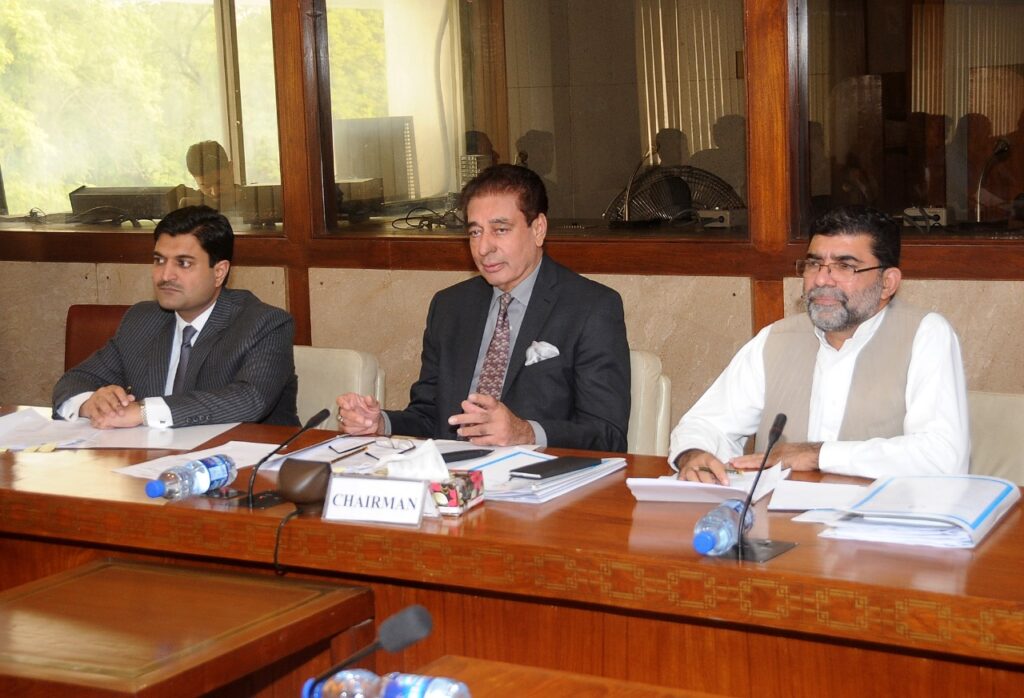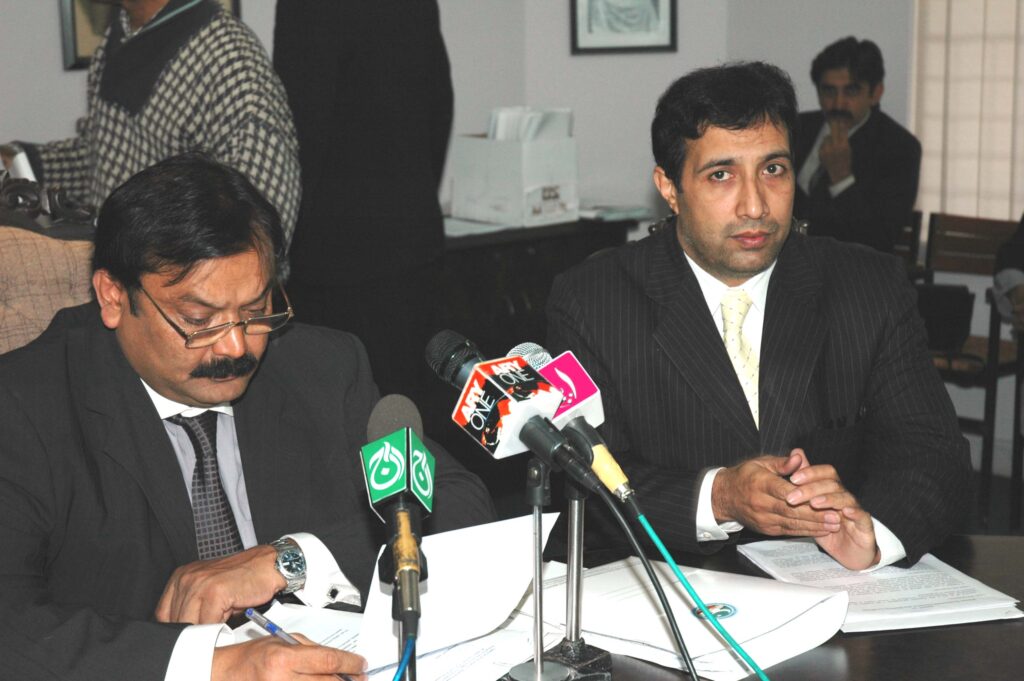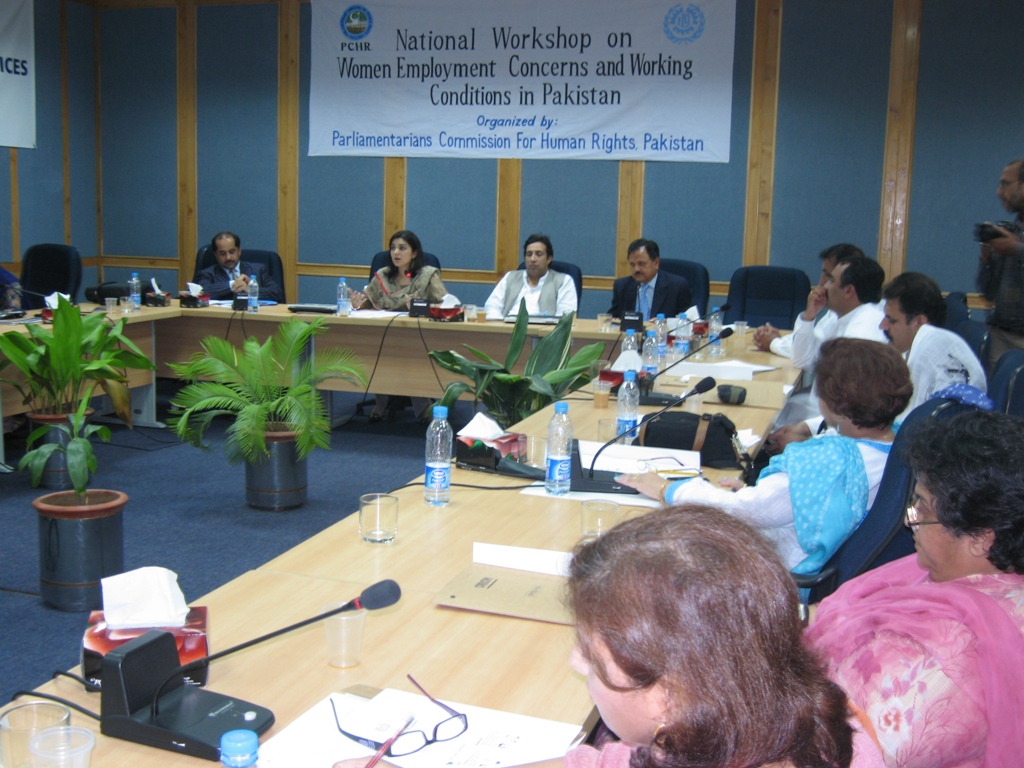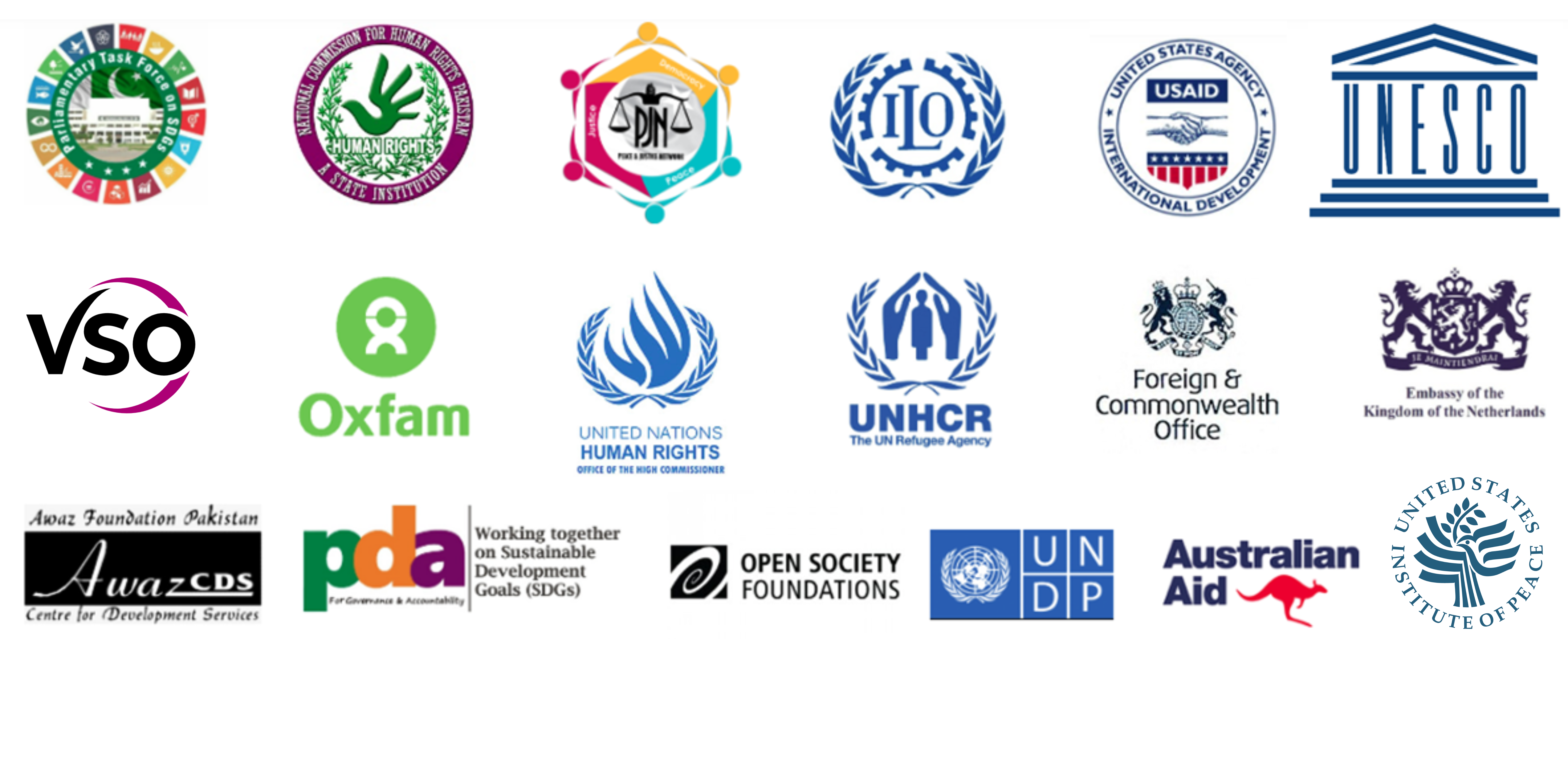Parliament And Human Rights
Intro
Parliament is the key ‘”institution in Democracy. It is the apex organization that alone can safeguard the basic rights of citizens.
Major function of the parliament is to deliver legislation and governance that really protect people’s fundamental rights.
Legislatures represent masses, shape laws and exercise a degree of oversight or control over executive and hence can function or perform as best governing partners and thus contribute to good government by increasing its capacity to monitor and respond to public needs, by playing a part in passing legislation capable of withstanding critical scrutiny, and serving as a vehicle for improving standard of probity, efficiency, and responsiveness in the administration of laws.

Pakistan’s Case
- Using Parliamentary practices such as questions, call attention notices, adjournment motions and resolutions, to draw Government’s attention to Human Rights issues.
- Enhancing legislation for the protection of Human Rights, by presenting private member bills, suggesting amendments and participating in the drafting of bills and in Parliamentary debates.
- Conducting consultation with national and international experts and organizations to ensure that the parliamentarians are guided by all available expertise in the area of Human Rights.
- Operating a citizens complaint cell where the parliamentarians themselves receive and respond to people’s complaints of rights violations.
- Conducting research on various Human Rights issues and documenting the same.
- Holding the Government organizations accountable for the grievances for which they may be responsible.
- Participating in the security of public institutions with Human Rights responsibilities such as prison, police etc.
- Conducting on the spot investigations of Human Rights violations and publishing the results.
- Publishing reports on all aspects of Human Rights and the Commission’s contribution towards their protection and promotion.
- Operating a secretariat to support all aspects of the Commission’s work.
- Laising with the relevant regional and international organizations.
Role Of Parliamentarians
Parliamentarians have four major roles. Firstly they are public representatives, which have direct mandate from various interest groups to represent them; secondly, they are legislators, charged with making and amending national laws and policies. Thirdly, they are scrutinizers, exercising oversight to hold the government (executive) accountable for all it does, and fourthly, having immense influence over masses they are the social reformed, helping mould society and national institutions to the challenges of the world.
In every aspect of the parliamentarian’s role you can find an accumulated backlog of work that needs to be done to safeguard citizen’s rights.

As Public Representatives
As representatives, parliamentarians are first and foremost, representative institutions. An efficient parliament that does not relate to its constituents is not an effective legislature. But when citizens knowledgeably engage in the legislative process, the legislature is legitimised as a law making institution. Actually, where they function, Legislatures are useful “nerve endings of the polity”, because Parliamentarians typically operate with greater transparency, or at least with less secrecy. as compared to the judicial or executive agencies. They are diverse in their memberships (usually designed to represent a broader range of interest /characteristics / places) from which a first hearing and early support maybe gained.
Constituents have greater access and often are more likely to feel that they have a claim on a representative than on other government officials. And legislative proceedings are often organised to maximise public attention to particular controversies and to offer participation opportunities ranging from contacting individual representatives to organised hearings. So, honouring the people’s claim over their representatives we are treating public complaints also as a constituency work. We register and appraise complaints and try to refer the complainants to sources of relief, often using the good offices of our respected members to open doors in departments that should have entertained the complaint in the first place.
As Legislators
While, coming to Law-making functions.
I must add that representing the public means more than articulating citizen preferences; it also involves having a role in translating preferences into policy through enacting legislation. The representative and law-making function co-exist in an uneasy but necessary relationship. Law making requires reconciling of differences once articulated, as well as pressing the legislatures claim to power against the executives and other power – holders, such as political parties. This requires extensive parliamentary debate and discussion and also involvement of general public in that process through a systemised effort. In Pakistan, over the last two decades, law making by ordinance, and with neither public nor parliamentary debate, has become the practical, as successive National Assemblies have failed to proceed with legislative programmes. There are many instances of the ways in which human rights have suffered in the process. For example, Pakistan now has twenty years of experience of implementation of the Hudood Ordinances. There is general recognition that the Zina Ordinances has been used as tool in domestic disputes, leading to incarceration of large number of women, in a way unanticipated by the drafters of the law. But in 20years, we have not had a parliament that could impartially review this law and agree on how to protect the rights of those currently suffer from arbitrary powers conferred by the ordinance. This is basically our challenge.
The commission have launched work on human rights legislation, by consulting with civil society groups, the law commission and other experts on the laws and amendments required to tackle issue such as protection of refugees, freedom of information, minority rights and restriction of death sentence.
As Scrutinisers/monitors
Oversight occurs after a law is passed and involves monitoring executives for efficiency, probity, and fidelity. While most parliamentarians have some formal oversight powers, effective monitoring is difficult to exercise because it requires information about executive branch activities, the legislative capacity to process that information, legislative will to act, and the power to backup demands for improvement! access/responsiveness. Oversight even more than lawmaking put the parliamentarians into an adversarial relationship with some portion of the executive. Among the most useful oversight powers and capacities found in effective parliamentarians are:
- The power to get information from the executive (through assembly questions, notices etc)
- The effective use of parliamentary practical tools such as motions, resolutions, call attention notices etc. to compel executive to respond to parliament positively.
- The effect use of power of the purse and a functioning committee system capable of knowledgeably monitoring and assessing executive branch behaviour.
All are useful in themselves and as ways of indirectly compelling the executive branch to heed legislative concern.
Our members have already been pioneering the use of parliamentary questions and resolutions as a way of scrutinising the government’s performance on protecting citizen’s rights. We are trying to breakout of the old pattern whereby members of parliament mainly used question time to lobby for gas and electricity connection. Our members have submitted parliamentary questions on rights issues such as progress in police reforms, reform of the justice system, violence against women and abuse of the blasphemy law. We believe that successful monitoring or oversight in turn, can feed back into better law-making as experience gained in implementing post laws can be incorporated into future laws, and in better representation when legislators become more adept at shaping the administration of laws to consider impacts on constituents.
As Social Reformers
- We are well aware and fully cognisant of the fact that Pakistan has lagged behind expanding the fundamental rights enjoyed by its citizens. Few countries have committed themselves to few international human rights treaties so as Pakistan. We have started to play our role as social reformers, pushing open the boundaries of open debate and reform. In a small way, this is what we have done in taking the debate of honour killing and protection of women to the floor of parliament. We are trying to take advantage of the opportunity provided by the participation of members from all major political parties, to subject once taboo subjects to parliamentary debate. We believe that parliament has an obligation to challenge every law or institution that usurps rather than protects rights. By conducting consultation and research on Access to Justice, performance of the police and prisons, media and freedom of expression, violence against women, the blasphemy law and poverty, our parliamentarians have already shown their interest in a wide – ranging reform agenda. As we are moving into the second year of the current parliament we now have to prove our credentials as reformers who can. achieve real change.

Cooperation Between Treasury And Opposition Members
We are conscious of the significance of the cross-party nature of our commission. A functional democracy depends upon the existence of credible, competing, political parties that can advocate alternative policies and hold each other to account. But promotion of Human rights is an area in which there is scope for cross-party co-operation.
For example, in the Westminster system, the Human Rights Committee includes members from treasury and opposition and is specifically charged with reviewing legislation to identify arbitrary powers or potential for undermining of fundamental rights. The committee’s mandate is to stand back from the government’s political objectives in proposing any law, and consider only human rights implications. This is an attractive model for Pakistan’s parliamentary development, a way to combine principled co-operation on rights, with legitimate political opposition on policy.
We believe that we have made a good start, but we have along way to go in demonstrating what parliament can do to expand the rights enjoyed by the people of Pakistan.
Our Partners

